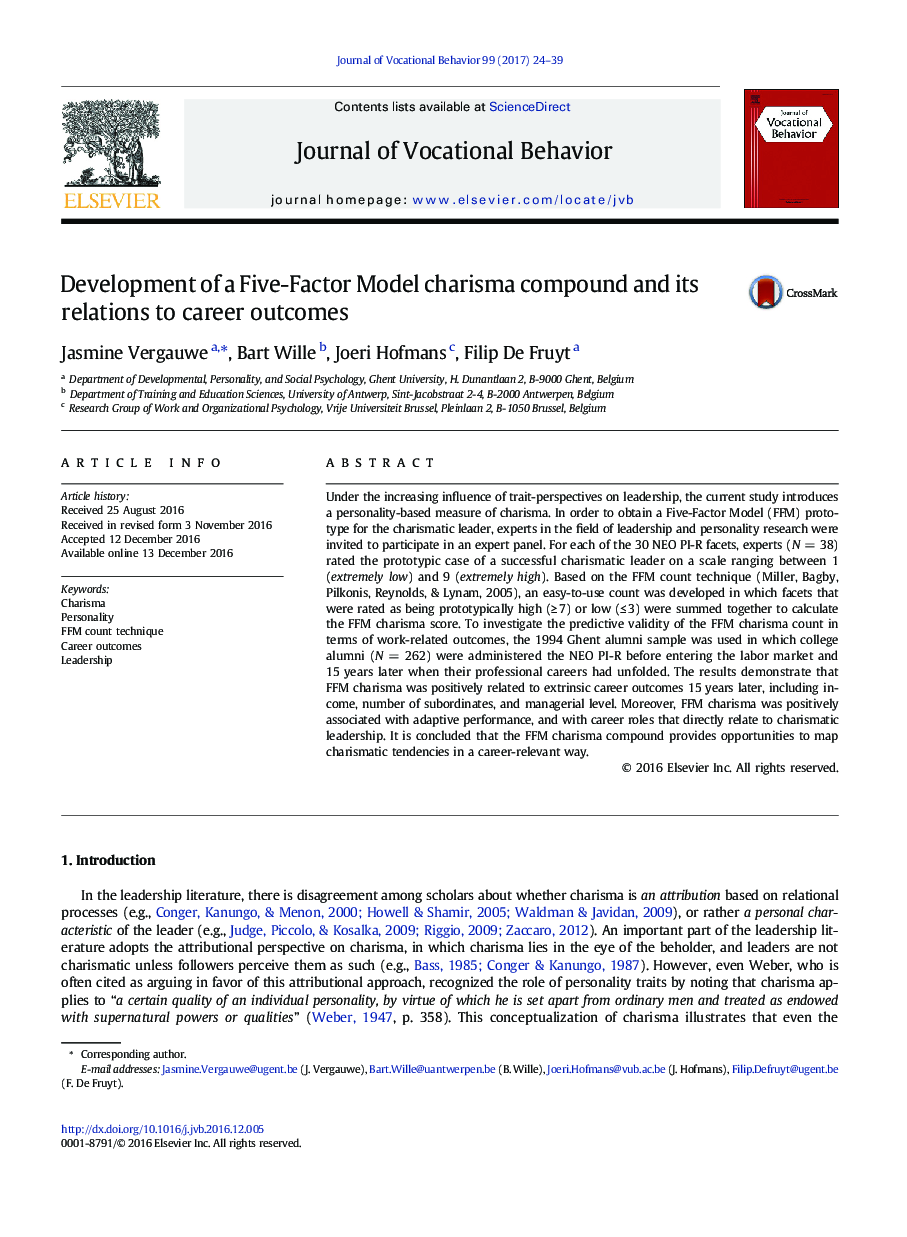| Article ID | Journal | Published Year | Pages | File Type |
|---|---|---|---|---|
| 5035150 | Journal of Vocational Behavior | 2017 | 16 Pages |
â¢A FFM charisma compound is proposed as a personality-based measure of charisma.â¢FFM charisma is relatively stable over a 15-year time span.â¢Longitudinal relations were found between FFM charisma and extrinsic career success.â¢Longitudinal relations were found between FFM charisma and adaptive performance.â¢Charismatic personality relates to leadership-related career roles 15 years later.
Under the increasing influence of trait-perspectives on leadership, the current study introduces a personality-based measure of charisma. In order to obtain a Five-Factor Model (FFM) prototype for the charismatic leader, experts in the field of leadership and personality research were invited to participate in an expert panel. For each of the 30 NEO PI-R facets, experts (N = 38) rated the prototypic case of a successful charismatic leader on a scale ranging between 1 (extremely low) and 9 (extremely high). Based on the FFM count technique (Miller, Bagby, Pilkonis, Reynolds, & Lynam, 2005), an easy-to-use count was developed in which facets that were rated as being prototypically high (â¥Â 7) or low (â¤Â 3) were summed together to calculate the FFM charisma score. To investigate the predictive validity of the FFM charisma count in terms of work-related outcomes, the 1994 Ghent alumni sample was used in which college alumni (N = 262) were administered the NEO PI-R before entering the labor market and 15 years later when their professional careers had unfolded. The results demonstrate that FFM charisma was positively related to extrinsic career outcomes 15 years later, including income, number of subordinates, and managerial level. Moreover, FFM charisma was positively associated with adaptive performance, and with career roles that directly relate to charismatic leadership. It is concluded that the FFM charisma compound provides opportunities to map charismatic tendencies in a career-relevant way.
